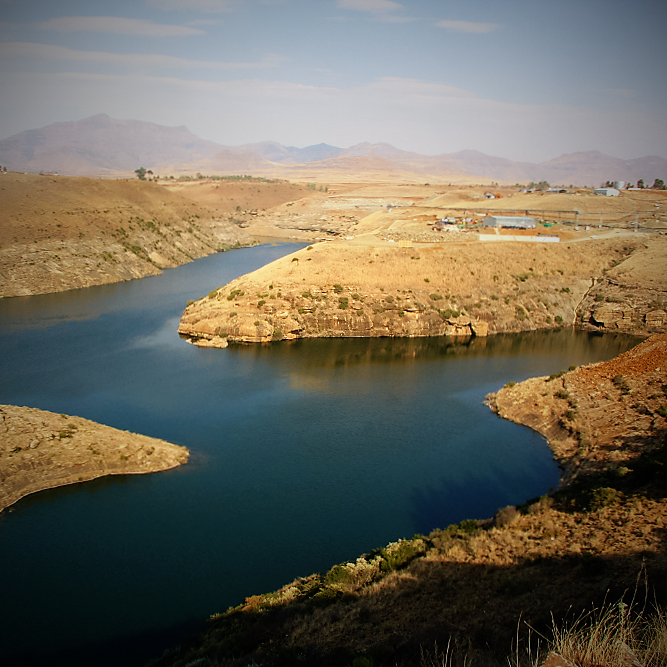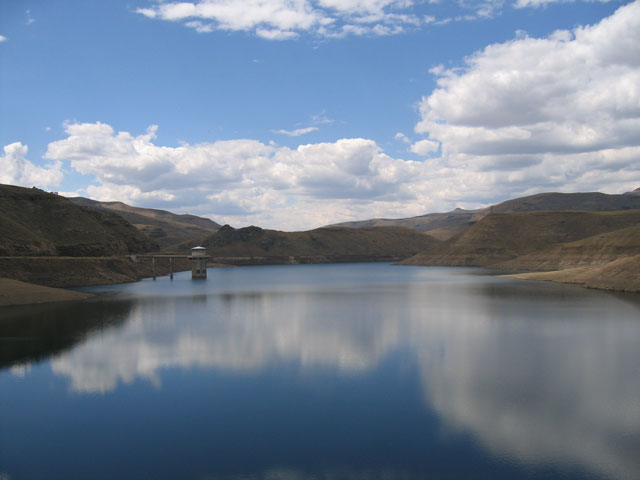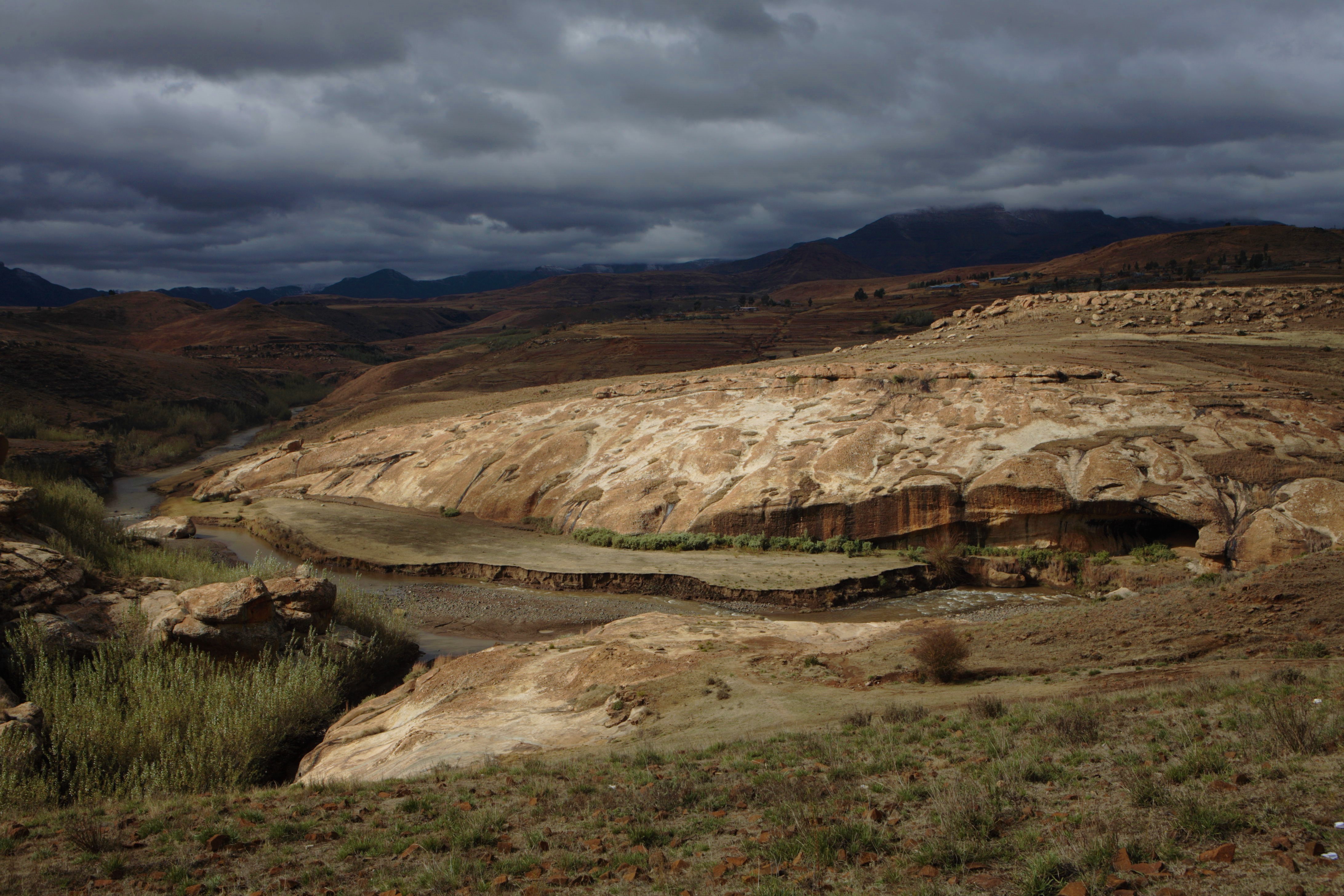Memory of a Drowning Landscape
Memory of a Drowning Landscape: Transition
Redrawing Our Maps of the World
Next Residency: Fall/Winter 2021 – (On COVID-19 hold since March 2019)
Roma and the Malealea Valley, Lesotho
Since April 2016, I've been involved in a four-phased experiment to perform the resonance of place in Lesotho, southern Africa. The project, Memory of a Drowning Landscape, builds on the earlier work on the destructive impacts of dam construction, Split the Village, expanding that project's focus on the global threat of climate change by looking at local loss.
In collaboration with students and colleagues from the National University of Lesotho’s Theatre Unit, I began to explore the intangible cultural heritage* lost to communities visually, acoustically, and orally along the flooded Phuthiatšana River Valley in rural Lesotho – the result of the construction of the Metolong Dam. Subsequent phases of Memory of a Drowning Landscape experimented with performance ideas around giving and receiving directions to places dependent on disappearing landmarks and flexible concepts of time and questions of who controls access to water.
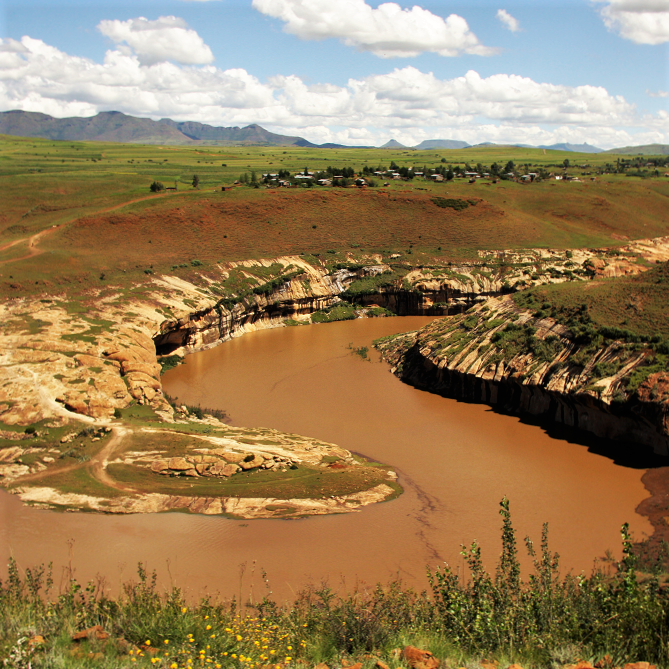
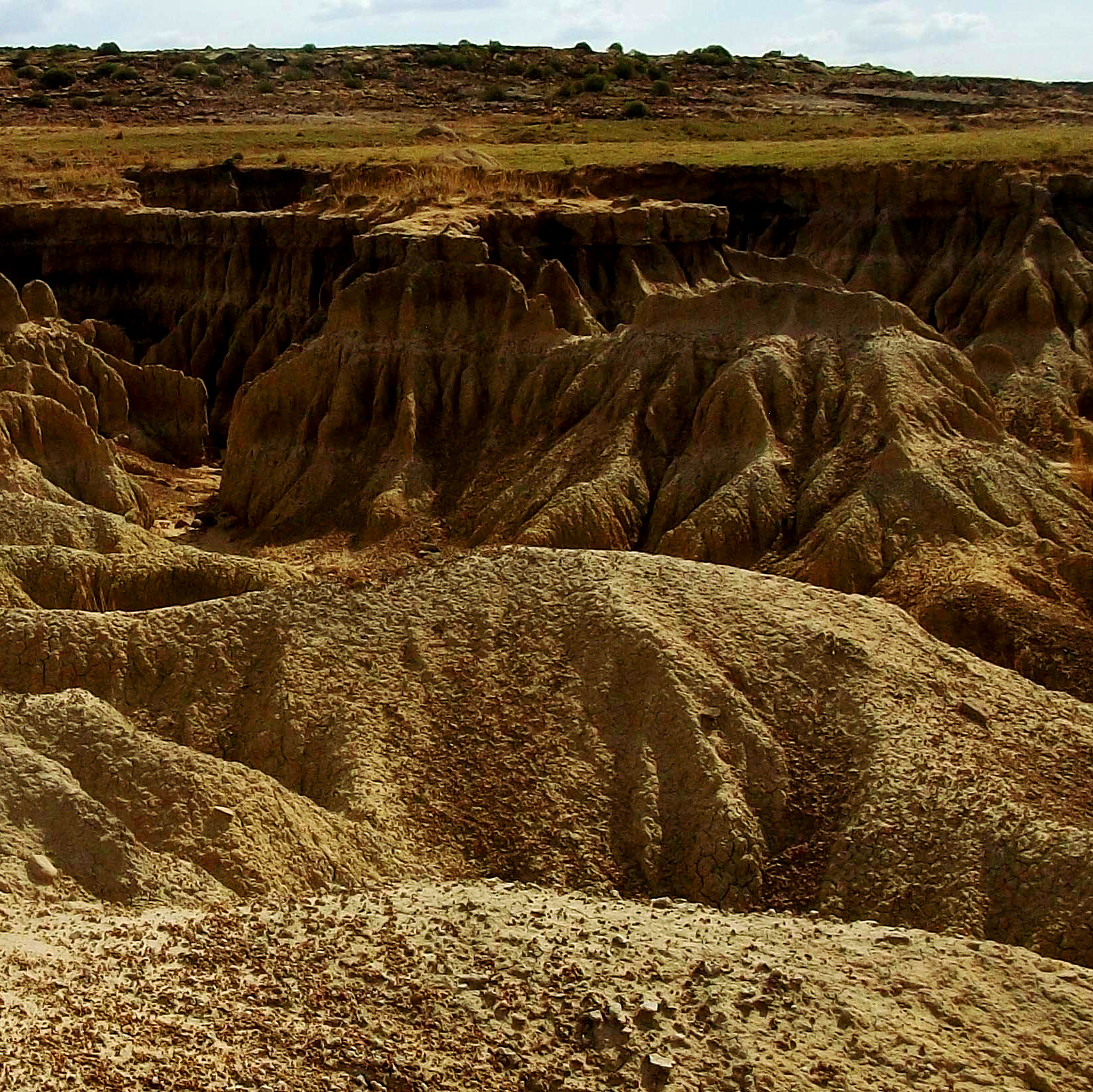
The piece we created, Where Will I Find Our Water? (Moo Ke tla Fumano Metsi a Rona?), is a tragi-comedy about altered landscapes and the ways we move through them, the continued power of folklore and stories, and the corruption inherent in the unending battle over water. It was performed as part of Lesotho’s National Heritage Day celebration.
The early phases of Memory of a Drowning Landscape gave vivid, encouraging evidence that there are ways to approach performing a vanishing world. The challenge, as the work moves forward into the fourth phase, Transition, will be to continue to discover how to perform what remains and what resonates while also resisting easy illustration. In ongoing collaboration with students and by reaching out to members of upended communities, the project will pursue deeper, universally resonant metaphors of what might no longer be. A central focus will be to expand efforts at gathering directions to altered places using markers and signposts that are recast or converted, all reliant on collective memory and narrative context – annotating the universal phenomenon of climate change, redrawing, and recalibrating the maps of our known world.
In winter 2021, if possible, as part of phase 4, Transition, we will be making preliminary preparations for an Environmental Arts Lab in the Malealea Valley. The Lab will be a partnership with the community-led Malealea Development Trust (which includes the participation and support of the Malealea Lodge), and with Make Art with Purpose. The Trust has a history of successful community leadership and village involvement across a spectrum of social issues, from HIV to orphan support to environmental initiatives like the reclamation of dongas (deep chasms from drought-induced erosion) and youth-driven recycling campaigns. From 2006 – 2018, Malealea (the Trust, the surrounding villages, and the Lodge) has also been one of the main residency and performance sites for The Winter/Summer Institute’s (WSI’s) work in Lesotho. WSI is a collaborative, international applied theatre project; I’m its Artistic Director (www.wsimaketheatre.org).
* Intangible cultural heritage includes: stories, songs, and dances; sites of ritual or spiritual power; local knowledge of plants and herbs; and the community’s “landscape map,” which was irrevocably transformed once the flooding began and the mnemonic devices people relied on to “place” themselves vanished.
